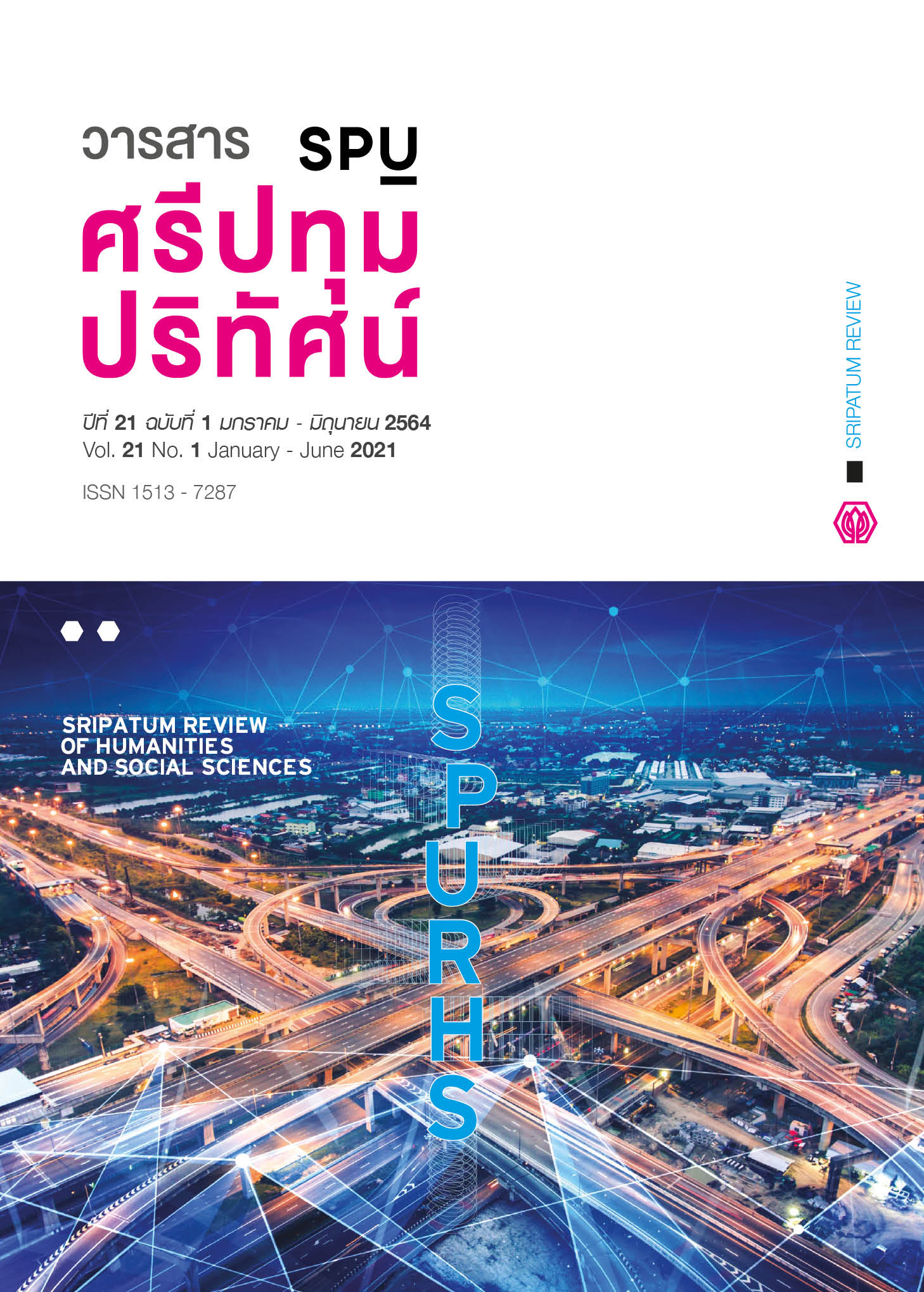นโยบายของรัฐบาลสาธารณรัฐประชาธิปไตยประชาชนลาว ในการส่งเสริมบทบาทผู้หญิงผ่านสหพันธ์แม่หญิงลาว (Lao PDR Government’s Policies in Promoting Women Roles Through Lao Women’s Union)
Main Article Content
บทคัดย่อ
การวิจัยนี้มีวัตถุประสงค์เพื่อ (1) ศึกษานโยบายของรัฐบาลสาธารณรัฐประชาธิปไตยประชาชนลาวในการส่งเสริมบทบาทผู้หญิงผ่านสหพันธ์แม่หญิงลาวก่อนและหลังนโยบายจินตนาการใหม่ (2) ศึกษาบทบาทของสหพันธ์แม่หญิงลาวในการสนับสนุนบทบาทผู้หญิงตามนโยบายรัฐบาลสาธารณรัฐประชาธิปไตยประชาชนลาวก่อนและหลังนโยบายจินตนาการใหม่ การศึกษาครั้งนี้เป็นการวิจัยเชิงประวัติศาสตร์ จากการศึกษาพบว่านโยบายรัฐบาลสาธารณรัฐประชาธิปไตยประชาชนลาวในการส่งเสริมบทบาทผู้หญิงผ่านสหพันธ์แม่หญิงลาว แบ่งออกเป็น 2 ช่วงเวลา คือ (1) ก่อนการประกาศใช้นโยบายจินตนาการใหม่ โดยมีปัจจัยภายในและปัจจัยภายนอกที่สำคัญในการเปลี่ยนนโยบายเพื่อส่งเสริมบทบาทผู้หญิงของรัฐบาลลาวผ่านตัวองค์กรจัดตั้งแม่หญิงลาวทั้งในนามของ “สมาคมแม่หญิงลาวฮักชาติ” และ “สหพันธ์แม่หญิงลาว” (2) หลังการประกาศใช้นโยบายจินตนาการใหม่ในปี ค.ศ. 1986 เป็นต้นมา การส่งเสริมบทบาทผู้หญิงของสหพันธ์แม่หญิงลาวมีความเข้มข้นและหลากหลายมากขึ้น และสามารถที่จะสร้างแนวทางการส่งเสริมบทบาทผู้หญิงเป็นของตนเองโดยการผสมผสานระหว่างแนวทางของพรรคประชาชนปฏิวัติลาวและกองประชุมผู้หญิงสากลในแต่ละช่วงเวลาต่าง ๆ เพื่อให้การส่งเสริมบทบาทผู้หญิง และบทบาทหญิง-ชายในสังคมลาวให้มีความเหมาะสมกับยุคสมัยและทันต่อสถานการณ์โลก
Article Details
1. กองบรรณาธิการสงวนสิทธิ์ในการพิจารณาและตัดสินการตีพิมพ์บทความในวารสาร
2. บทความทุกเรื่องจะได้รับการตรวจสอบทางวิชาการโดยผู้ทรงคุณวุฒิ แต่ข้อความและเนื้อหาในบทความที่ตีพิมพ์เป็นความรับผิดชอบของผู้เขียนแต่เพียงผู้เดียว มิใช่ความคิดเห็นและความรับผิดชอบของมหาวิทยาลัยศรีปทุม
3.การคัดลอกอ้างอิงต้องดำเนินการตามการปฏิบัติในหมู่นักวิชาการโดยทั่วไป และสอดคล้องกับกฎหมายที่เกี่ยวข้อง
เอกสารอ้างอิง
Chairat, N. (2008). Gender and Migrant Women in Rural Laos in the New Economic Mechanism. Chiangmai: Center for Women's Studies. (in Thai)
Chaiyachak, M. (2016). On the Path to the Revolution. Vientiane: State printing house. (in Laos)
Janthabanjoong, L. (2011). Women’s role in Household income by weaving for of Phukaokham village Keooudom district Vientiane province. Thesis of the Degree of Master of Social Sciences Program in Social development. Vientiane: National University of Laos. (in Thai)
Kittithornsakun, K. (2008). Creating National awareness through The Lao Revolution music since after The World War 2nd time to present. Thesis of the Degree of Master of Arts Program in Regional Studies. Chiangmai: Chiangmai University. (in Thai)
Klangsriwat, M. (1993). Mae Ying Laos: in Past and Present. Vientiane: State printing house. (in Laos)
Luangsombat, M. (2011). Impact of Development Fund Project on Female-Male Relationship: A case study of Baan Na Khoon Nuea development Fund Lao People's Democratic Republic. Thesis of the Degree of Master of Arts Program in Women’s studies. Chiangmai: Chiangmai University. (in Thai)
Mettarikanon, D. (2012). Many Dimensions Laos History. Bangkok: Ancient city. (in Thai)
Panyawuttrakun, W. (2016). " Mae " is a Mae who plays a Role in Women above The status of Women Lao society. In Phiphat Krajajchan (editor), Women power, mae mae and lady god: truth and representation (pp. 91-103). Bangkok: National Printing Office of Buddhism. ( in Thai)
Sribunhong, S. (2011). Construction of Lao Women's identity by The Government of Lao People's Democratic Republic since 1975 to the present. Thesis of the Degree of Master of Arts Program in Women’s studies. Chiangmai: Chiangmai University. (in Thai)
Tosi, L., Henri. (2009). The Theories of Organization. Florida: University of Florida.
Tularak, U. (2007). Women in Contemporary Lao Literature after National and Democratic Revolution in 1975. Thesis of the Degree of Doctor of Philosophy Program in Tai Studies. Mahasarakham: Mahasarakham University. (in Thai)


